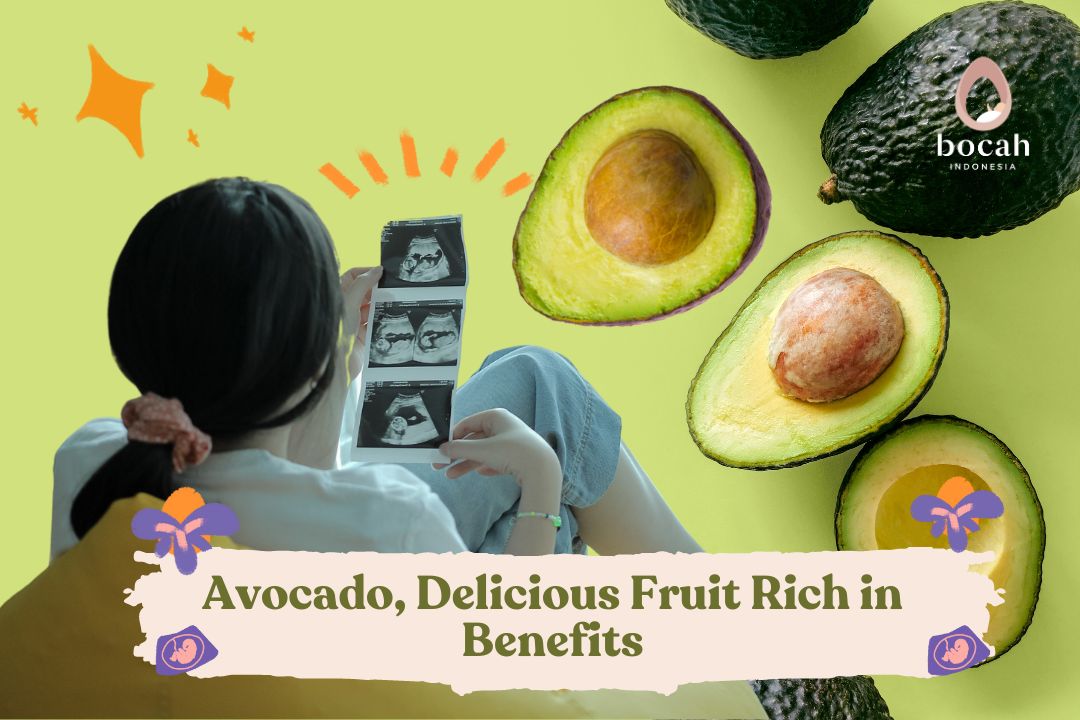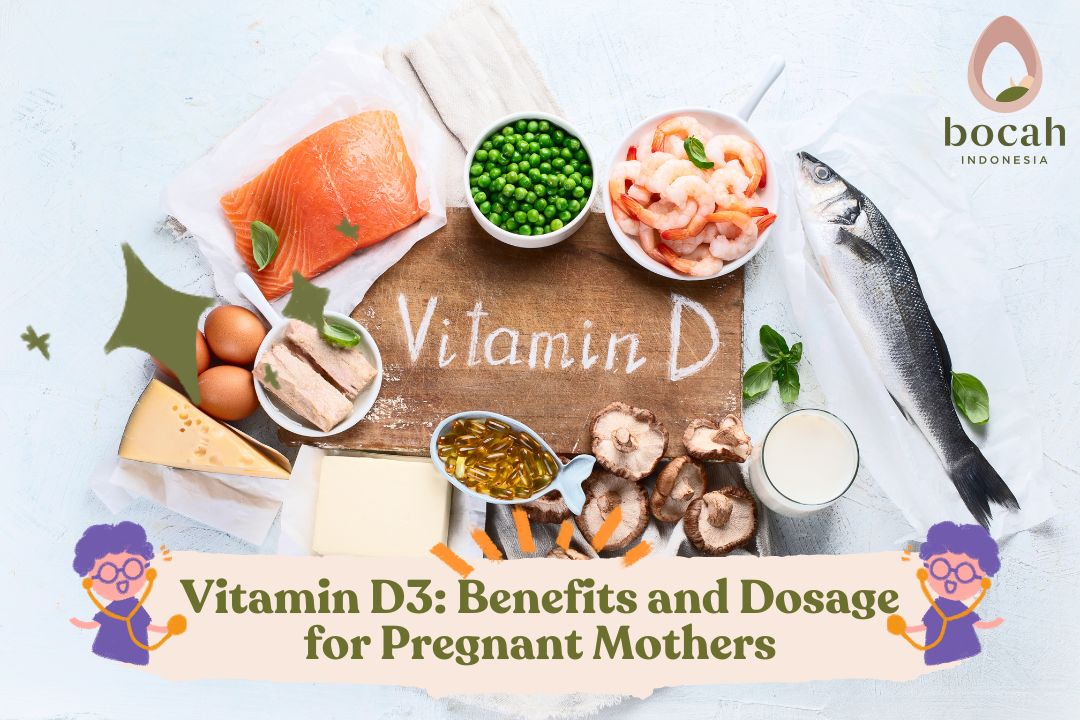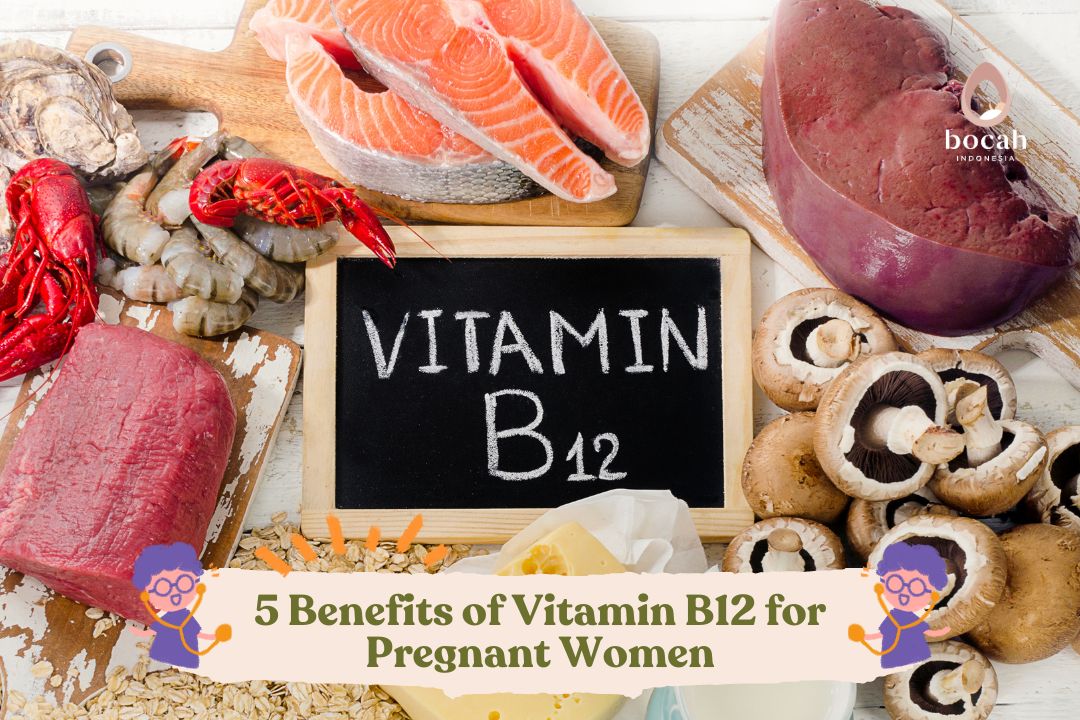Avocado, Delicious Fruit Rich in Benefits

Avocado is a fruit abundant in nutrients and holds several significant advantages for expectant mothers. Come on, Moms, let’s discover the beneficial aspects of avocado below.
During pregnancy, appropriate nutritional intake is crucial to support fetal growth and development, as well as the health of the pregnant mother. Avocado is an excellent food choice to consider due to its diverse nutritional content.
Containing fiber, healthy fats, vitamins, minerals, and plant compounds, here are several advantages of avocado that are beneficial for Moms and their precious little ones, whether consumed during the first trimester or throughout the pregnancy.
Nutritional Content of Avocado
Avocado is an excellent source of nutrients such as magnesium, potassium, vitamin C, vitamin E, and vitamin K. The nutritional information provided below represents the content of avocado according to the United States Department of Agriculture.
| Nutritional Content of Avocado (100 grams) | |
|---|---|
| Kalori | 160 |
| Lemak | 14.7 grams |
| Natrium | 7 grams |
| Karbohidrat | 8.5 grams |
| Serat | 6.7 grams |
| Gula | 0.7 grams |
| Protein | 2 grams |
| Magnesium | 29 milligrams |
| Kalium | 485 milligrams |
| Vitamin C | 10 milligrams |
| Vitamin E | 2.1 milligrams |
| Vitamin K | 21 micrograms |
Benefits of Avocado Content for Pregnant Women
Avocado, also known as the Persea americana, is a fruit that grows from a plant with the scientific name Persea americana. This plant originally comes from the southern part of Mexico. Here are some benefits of avocado for women in the first trimester of pregnancy.
Tanya Mincah tentang Promil?
1. Avocado is Rich in Fiber
Fiber is essential for optimal health during pregnancy. In fact, fiber is necessary to support healthy bowel movements. Moreover, in the journal Food Science and Nutrition, consuming fiber-rich foods like avocado during pregnancy can help reduce the risk of gestational diabetes and preeclampsia.
In certain conditions, some pregnant women experience a deficiency in adequate fiber intake. This can be addressed by consuming half an avocado (100 grams) which provides nearly 7 grams of fiber, reaching about a quarter of the recommended daily minimum intake of 28 grams of fiber during pregnancy.
2. Preventing Insomnia during Pregnancy
Some people are wary of consuming avocado because it contains fat, but it’s important to note that the fat in avocado is healthy fat and not saturated fat!
Healthy fat content is crucial during pregnancy. Healthy fats are important for heart health, blood sugar regulation, and maintaining a feeling of fullness between meals, as quoted in the Journal of The American Heart Association.
Furthermore, a high intake of monounsaturated fats such as avocado during pregnancy can help improve sleep quality and prevent insomnia in pregnant women.
3. Meeting the Nutritional Needs of Pregnant Women
Avocado can help mothers meet their nutritional needs during pregnancy. In addition to protein and total calories, the requirements for certain vitamins and minerals increase during pregnancy. For example, pregnant women need more intake of folic acid, magnesium, and vitamin C compared to those who are not pregnant.
Avocado is a concentrated source of many nutrients that are needed in high amounts during the pregnancy process, including being rich in vitamin C, folic acid, and magnesium.
The need for folic acid significantly increases during pregnancy due to its important role in fetal development. Consuming 100 grams of avocado or half an avocado can meet about 14 percent of the daily folic acid requirements for mothers during pregnancy.
4. Helping Maintain Healthy Blood Pressure
Avocado is a rich source of magnesium and potassium, nutrients that are essential for maintaining healthy blood pressure. During pregnancy, consuming potassium-rich foods like avocado can help reduce the risk of developing gestational hypertension.
A 2013 study published in the National Library of Medicine evaluated 263 pregnant women and showed that those who consumed 250 to 300 milligrams (mg) of potassium per day had a lower risk of developing high blood pressure during pregnancy.
Avocado is a concentrated source of potassium. Just half an avocado (100 grams) contains 485 mg of potassium. Avocado is also rich in magnesium, a mineral important for regulating blood pressure.
5. Rich in Antioxidant Content
Antioxidants are beneficial compounds that help protect cells from damage and are good for overall body health. Avocado is rich in antioxidants, especially the carotenoid lutein. Lutein has strong antioxidant properties and is crucial for the development of the baby’s eyes and brain function.
Because lutein is a fat-soluble compound and its absorption is more efficient from avocados compared to fruits or vegetables that contain low-fat levels.
In addition to lutein, avocados also contain various other antioxidants, including:
- Zeaxanthin
- Beta-carotene
- Vitamin C
Carotenoid antioxidants including beta-carotene, lutein, and zeaxanthin are found in breast milk. Their levels depend directly on maternal intake. Consuming more avocados while breastfeeding can help increase the carotenoid content in breast milk, which is important for infant growth and development.
6. Healthy Delayed Hunger Snack
When pregnant, providing the right nutrients to the body becomes very important to keep both the mother and the baby healthy. When feeling hungry, choosing healthy foods or snacks during pregnancy is crucial.
Therefore, consuming avocado as a snack between meals is appropriate. Not only is it healthy, but avocado can also make you feel full for a longer time, preventing overeating during pregnancy.
Avocado is rich in fiber and healthy fats, nutrients that have been proven to enhance the feeling of fullness. Consuming avocado can also help maintain your energy throughout the day and assist in maintaining a healthy weight, which is crucial for the health of both the mother and the baby.
7. Maintaining Healthy Blood Sugar During Pregnancy
Maintaining optimal blood sugar and blood lipid levels can help ensure a healthy and safe pregnancy. Consuming avocados can help reduce the risk of certain heart diseases, regulate blood sugar levels, and reduce the risk of pregnancy complications.
Avocado is low in carbohydrates and rich in fiber and healthy fats, making it a good choice for pregnant women with a history of high blood sugar levels or diabetes.
Consuming avocados can help lower post-meal blood sugar levels in individuals with high blood sugar levels. Additionally, avocados can help increase HDL (good cholesterol) levels that protect the heart and lower LDL (bad cholesterol) levels, which can help reduce the risk of heart disease and promote overall health during pregnancy.
In conclusion, avocado is an excellent choice for mothers. Not only is it rich in nutrients, but it also has a delicious and satisfying taste. Moreover, consuming avocado during pregnancy can provide health benefits for both the mother and the baby.
Not only during pregnancy, but avocados are also beneficial for mothers who are planning or undergoing fertility programs, as they can help enhance fertility.
Do you want to receive information and education about pregnancy programs? Don’t forget to turn on notifications for updates, Moms and Dads!
Source:
- U.S. DEPARTMENT OF AGRICULTURE. Avocado, raw. Diakses 2023 https://fdc.nal.usda.gov/fdc-app.html#/food-details/786651/nutrients
- Bennett CJ, et al. Monounsaturated fat intake is associated with improved sleep quality in pregnancy. Diakses 2023. https://doi.org/10.1016/j.midw.2019.07.019
- Comerford KB, et al. The role of avocados in maternal diets during the periconceptional period, pregnancy, and lactation. Diakses 2023. https://www.mdpi.com/2072-6643/8/5/313/htm
- Han H, et al. Dose-response relationship between dietary magnesium intake, serum magnesium concentration and risk of hypertension: A systematic review and meta-analysis of prospective cohort studies. Diakses 2023. https://dx.doi.org/10.1186%2Fs12937-017-0247-4
- Hervik AK, et al. The role of fiber in energy balance.Diakses 2023. https://dx.doi.org/10.1155%2F2019%2F4983657
- Heskey C, et al. Avocado intake, and longitudinal weight and body mass index changes in an adult cohort. Diakses 2023. https://www.ncbi.nlm.nih.gov/pmc/articles/PMC6471050/







